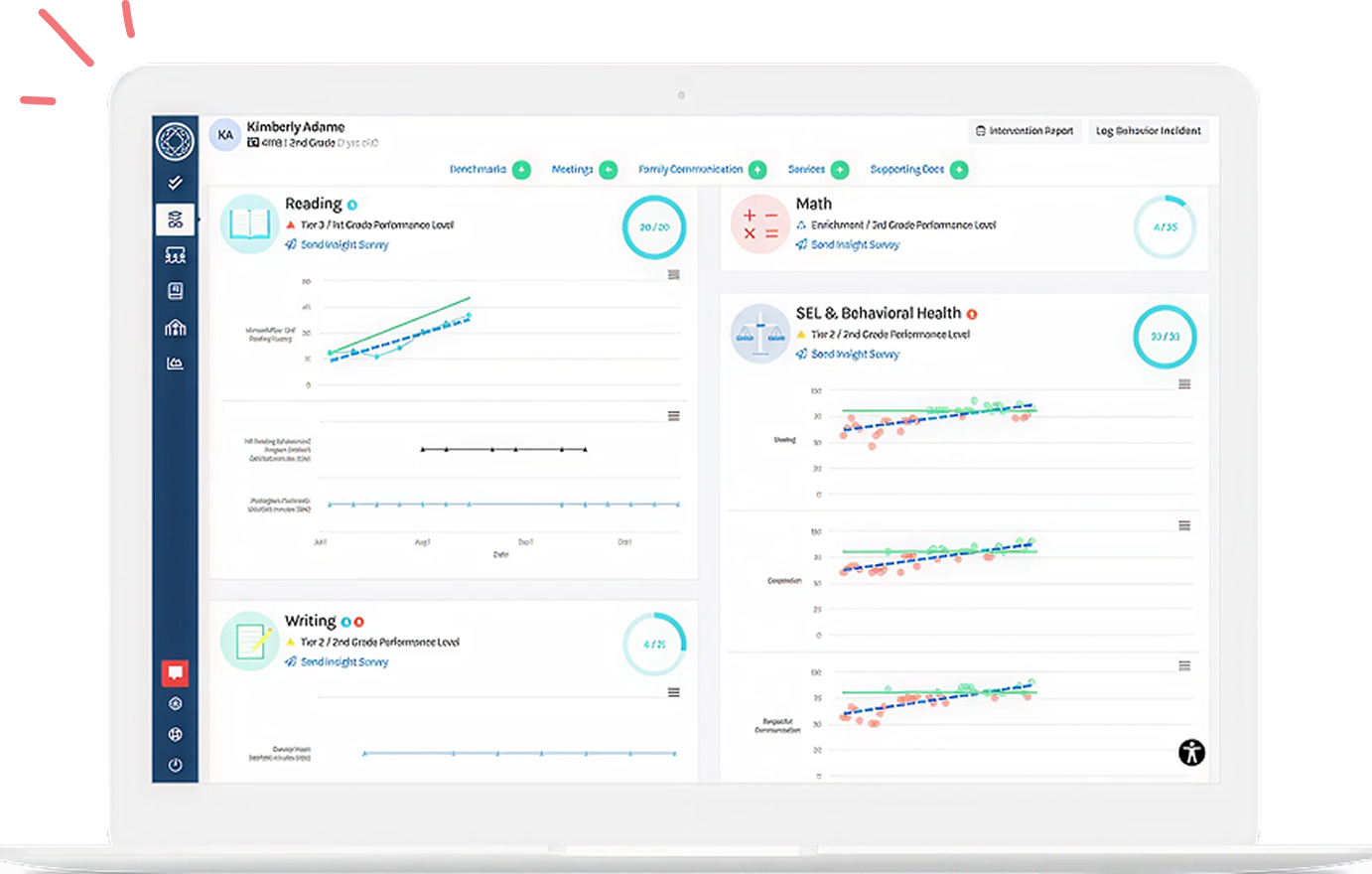There is often a lot of confusion over using assessment data in effective Response to Intervention (RTI) / Multi-Tiered System of Supports (MTSS) practices. Largely because each assessment type has a different function.
What Are the Different Assessment Types Within Response to Intervention (RTI) / Multi-Tiered System of Supports (MTSS)?
1. Summative Assessments
Summative assessments are administered to all students annually to determine students’ mastery of grade-level standards and provide educators with information about adequate yearly progress at site and district levels.
2. Universal Screening Assessments
Universal screening assessments are administered to all students three times per year to proactively and objectively identify which students are potentially in need of educational supports/enhancements to supplement the core curriculum.
Furthermore, universal screening data is evaluated to ensure the core curriculum results in success for a sufficient percentage of students. These assessments should be nationally or state-normed and predictive of performance on summative assessments.
2. Progress Monitoring Assessments
Progress monitoring assessments are given to students receiving intervention support and are administered weekly or every other week, depending on the intensity of need. These data should come from Curriculum-Based Measurements (CBMs) because they provide a reliable and valid measure of students’ growth in a particular skill area.

Learn more about how we can help
About the author
Branching Minds
Branching Minds is a highly respected K-12 services and technology company that leverages the learning sciences and technology to help districts effectively personalize learning through enhancements to their MTSS/RTI practice. Having worked with hundreds of districts across the country, we bring deep expertise in learning sciences, data management and analysis, software design, coaching, and collaboration. Combined with our extensive toolkit of resources, PD, and technology, we provide a system-level solution. We are more than a service or a software provider, we are partners who will deliver sustainable results for educators, and a path to success for every learner.

Your MTSS Transformation Starts Here
Enhance your MTSS process. Book a Branching Minds demo today.












